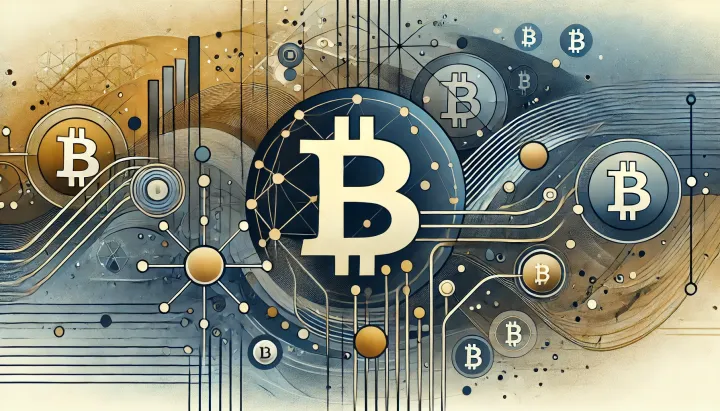Transforming Scarcity into Abundance with Bitcoin
On April 15, 2025, the Robin Seyr Podcast featured Noah Kaufman, who detailed how Bitcoin can transcend traditional fiat scarcity to foster personal growth and societal well-being. The conversation connected Bitcoin’s savings technology with transformative self-actualization and moral realignment.

- My 'briefing notes' summarize the content of podcast episodes; they do not reflect my own views.
- They contain (1) a summary of podcast content, (2) potential information gaps, and (3) some speculative views on wider Bitcoin implications.
- Pay attention to broadcast dates (I often summarize older episodes)
- Some episodes I summarize may be sponsored: don't trust, verify, if the information you are looking for is to be used for decision-making.
Summary
On April 15, 2025, the Robin Seyr Podcast featured Noah Kaufman, who detailed how Bitcoin can transcend traditional fiat scarcity to foster personal growth and societal well-being. The conversation connected Bitcoin’s savings technology with transformative self-actualization and moral realignment. This synthesis of financial and personal renewal underscores the potential for a post-money society.
Take-Home Messages
- Personal Renewal: Bitcoin enables self-actualization by promoting a long-term, health-focused mindset.
- Economic Transformation: Shifting from fiat scarcity to abundance can redefine value systems.
- Moral Realignment: Bitcoin’s deflationary nature supports ethical behavior and equitable wealth distribution.
- Resilience Building: Embracing low time preference fosters sustainable financial and personal resilience.
- Societal Evolution: The paradigm shift toward a post-money society holds promise for broad-based well-being.
Overview
Noah Kaufman traces his journey from early Bitcoin investments to embracing a philosophy of self-actualization through Bitcoin. He explains how self-Bitcoinization serves as a framework for nurturing a balanced approach to life that values long-term well-being over immediate gains. Kaufman emphasizes that this shift is fundamental to overcoming the limiting aspects of fiat monetary systems.
Kaufman highlights that adopting a low time preference plays a critical role in enhancing physical, mental, and spiritual health. His discussion connects this mindset with a broader transformation in personal value systems. The narrative underscores that the accumulation of Bitcoin can coexist with, and even promote, a more fulfilling life.
The conversation critiques the fiat system’s role in fostering a scarcity mentality that pervades modern society. Kaufman argues that Bitcoin offers an antidote by channeling deflationary benefits and nurturing an abundance mindset. This perspective is positioned as a necessary evolution to realign both financial and moral priorities.
Drawing on personal anecdotes and philosophical insights, Kaufman envisions Bitcoin as a transformative force that can eventually lead to a post-money society. His insights invite listeners to rethink traditional measures of wealth and success. The dialogue presents a holistic vision where financial security and personal development are mutually reinforcing.
Stakeholder Perspectives
- Individual Users: Likely to embrace Bitcoin as a dual tool for both financial security and personal growth.
- Health and Wellness Advocates: May support the shift toward low time preference and holistic well-being.
- Financial Institutions: Could express concern over Bitcoin’s potential to disrupt established fiat systems.
- Policymakers: Need to evaluate the societal impact of transitioning from scarcity-based to abundance-driven value systems.
- Educators and Thought Leaders: Are poised to leverage these insights to inform future dialogues on economic and moral transformation.
Implications and Future Outlook
The podcast indicates that Bitcoin’s potential to transform personal values and economic systems may drive a paradigm shift away from fiat scarcity. This evolution could lead to broader societal benefits, including improved health and equitable wealth distribution. However, realizing this vision demands proactive education and community engagement.
Future advancements in financial and technology sectors are expected to reinforce Bitcoin’s role as a catalyst for change. Stakeholders should invest in initiatives that promote low time preference and long-term thinking. This preparation is essential for mitigating current economic vulnerabilities and enhancing overall societal resilience.
In the near term, fostering robust communication and reducing toxicity within Bitcoin communities are critical. Bridging the knowledge gap through focused educational channels will help transition traditional mindsets to more abundance-oriented perspectives. These steps are vital for leveraging Bitcoin’s full potential as both a financial instrument and a tool for moral and personal growth.
Some Key Information Gaps
- How can Bitcoin be effectively utilized as a tool for personal self-actualization? This question addresses the mechanisms through which Bitcoin contributes to inner growth and transformation.
- How can the adoption of Bitcoin encourage a sustained low time preference among its users? This inquiry examines how Bitcoin might promote long-term planning and health-focused behavior.
- In what ways can Bitcoin disrupt the entrenched scarcity mentality established by fiat systems? This explores the potential for Bitcoin to fundamentally shift societal views on abundance and value.
- What critical indicators could signal a successful transition toward a post-money society facilitated by Bitcoin? This seeks to identify measurable outcomes that confirm systemic change.
- What are the most effective channels for disseminating transformative Bitcoin-related philosophies to both adopters and skeptics? This focuses on optimizing educational and communication strategies to broaden understanding.
Broader Implications for Bitcoin
Economic Restructuring
Bitcoin’s evolution could prompt a fundamental restructuring of economic models, shifting from scarcity-based fiat systems to abundance-focused paradigms. This transition may alter global financial norms and encourage greater resource distribution equity. The change could have lasting impacts on economic policy and financial markets.
Social and Moral Evolution
The embrace of Bitcoin as a tool for self-actualization fosters a reevaluation of personal and societal values. As individuals adopt long-term, well-being-oriented mindsets, traditional metrics of success may be replaced by measures of fulfillment and ethical conduct. This evolution supports a more compassionate and collaborative society.
Transformation in Governance
By reducing reliance on fiat currencies, Bitcoin could challenge entrenched systems of power and resource allocation. This shift may lead to decentralized governance models that prioritize transparency and community well-being. In turn, such changes can stimulate reforms in public policy and regulatory frameworks.



Comments ()